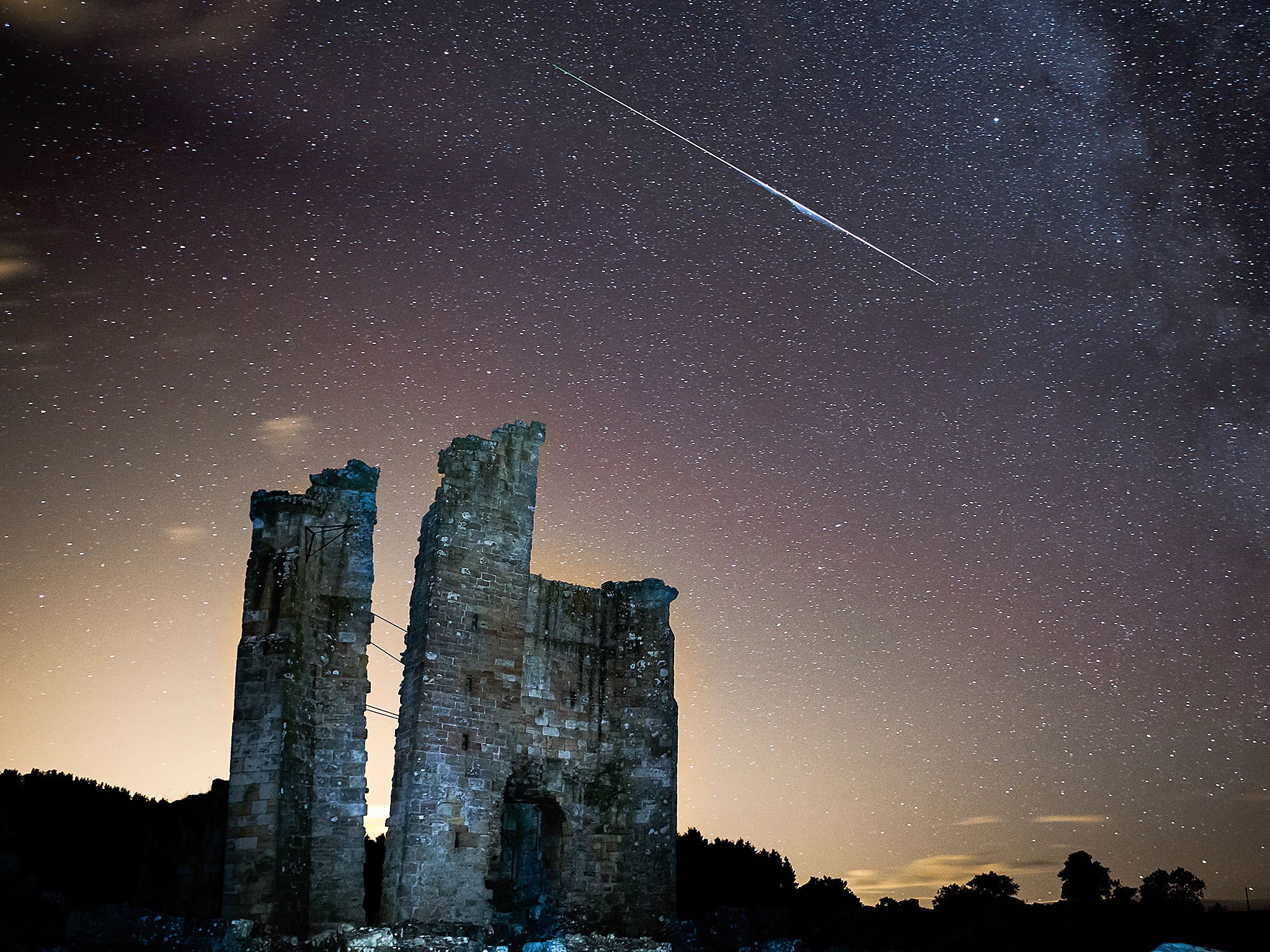Draconid meteor shower: Shooting stars to streak skies over UK this weekend as comet rounds sun
Spectacle will be followed by Orionids display later in the month

A meteor shower could be visible from the UK this weekend with dozens of shooting stars streaking across the sky.
The Draconid meteor shower spawns from the comet 21P/Giacobini-Zinner, which rounds the sun every 6.6 years, and occurs every year in October.
On Saturday and Sunday, there is a reasonable chance of earth passing through a swarm of debris left in the comet's wake, leading to meteors which appear as bright shooting stars when they enter the atmosphere and burn up.
The meteor shower is most likely to be visible in the direction of the constellation of Draco, the Dragon, in the northern sky, just before nightfall.
The best way to observe meteors is with the naked eye rather than through binoculars or a telescope, with astronomers advising stargazers in the UK to pick rural areas with minimal light pollution.
Viewers in North America, Europe and Asia or in countries close to the equator are expected to have the best vantage point.
A second meteor shower, the Orionids, will also take place later this month, peaking on 21 October.
PA
Join our commenting forum
Join thought-provoking conversations, follow other Independent readers and see their replies
Comments
Bookmark popover
Removed from bookmarks